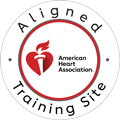Alzheimer’s is a disease in which it starts to affect ones’ memory, behavior, and daily life tasks. It is the most common form of dementia. Dementia is a term that describes a range of symptoms associated with signs of decreasing memory and skills due to physical changes in the brain. About 60-80% of dementia cases reported are Alzheimer’s. There are ten (plus) different kinds of dementia that physicians know of. The reason why the “plus” is mentioned is because sometimes a patient may not fall into one specific category. They may suffer from signs of two or three categories and like anything in the medical field, new things are always occurring.
What causes Alzheimer’s? Still slightly unclear about the full cause of Alzheimer’s, scientists and physicians believe that it is mainly due to genetic, environmental, and lifestyle changes over time affecting the brain. Although, suffering from Alzheimer’s due to genetics is less than a five percent chance. However, Alzheimer’s is very clear in the brain and the effects this disease has on people. There are two types of abnormalities happening in the brain of a person with Alzheimer’s that do not occur (as much) in a healthy person’s brain. These are called plaques and tangles. Plaques are proteins that clump up, damaging brain cells and interfering with the communication that happens between cells. Tangles are twisted strands of protein called tau. In areas where tangles are forming, the tau gets caught up and causes the transport system, which is vital for nutrients and other materials for the brain to function correctly, to disintegrate. As people get older some plaques and tangles develop but in a person with Alzheimer’s many more develop.
Unfortunately, not just elderly people suffer from Alzheimer’s. It can set in in a person’s 40s or 50s. Some symptoms of someone who is suffering from Alzheimer’s include many cognitive difficulties, behavioral changes, mood and psychological changes. Simple tasks like delay in recognizing a family member, frequent forgetfulness and confusion, and delusion are all cognitive symptoms of Alzheimer’s (dementia). Behavioral changes include agitation, aggression, wandering or getting lost, repetition of words, and general personality changes. Mood and psychological changes range from anger, loneliness, paranoia, and hallucination. Loss of appetite and inability to combine muscle movements are also common symptoms of Alzheimer’s (dementia). There are tests, blood and genetic, that can be done to identify if someone has Alzheimer’s or another kind of dementia.
There is not yet a cure for Alzheimer’s but there are many treatment options. Medications, alternative medications, sensory therapy and more can all be done to help someone cope with Alzheimer’s and help the symptoms decrease. A lot of treatment to help Alzheimer’s involves one-on-one interaction. Many times home nurses are brought into a home to help that person with every day simple activities; brushing their teeth, changing clothes, opening a water bottle. Alzheimer’s patients can also be moved into health facilities and assisted living where the nurses are specifically taught how to care for people of dementia.
Of course if you, a family member, or someone you know has Alzheimer’s it is not all sad and gloomy. There are times where the person is smiling and laughing and can hold a conversation with someone at times. Anyone with any branch of dementia should always have a strong support system and should not be abandoned or left alone. Although, caring for a person with Alzheimer’s can be very difficult and frustrating at times, one must be patient and remember this disease is not their fault and just to stay by their side and love them. There are many organizations that help greatly with Alzheimer’s to find a cure and end this disease.
References
http://www.mayoclinic.org/diseases-conditions/alzheimers-disease/basics/definition/con-20023871
http://www.webmd.com/alzheimers/


